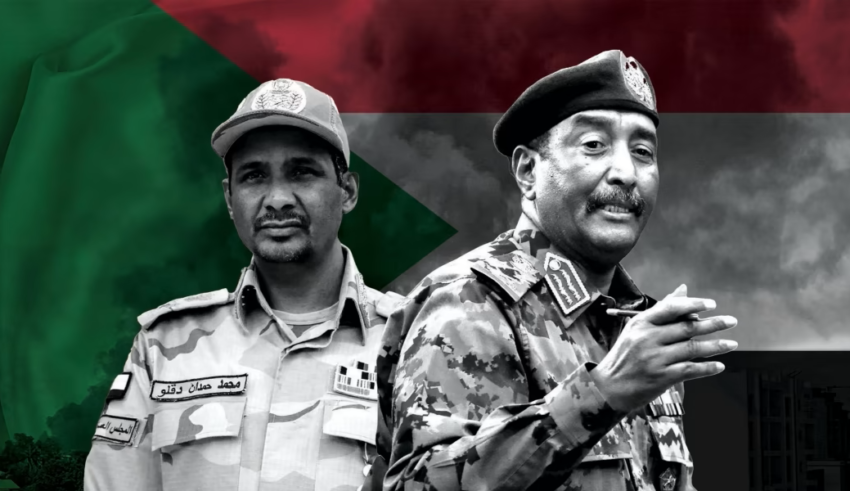
Sudan is once again in turmoil. The military clashes that take place the last days in Sudan have raised concerns about the country’s fragile transition to democracy and the potential for a return to authoritarian rule. The EU must act swiftly and decisively to support the Sudanese people and ensure that the democratic gains of the past few years are not lost.
The Sudanese after ta 30 years managed to get rid of their authoritarian ruler and have hope for democracy. The popular uprising, that led to the removal of al- Bashir, was driven by demands for political reform, economic opportunity, and an end to corruption and human rights abuses. In the wake of al-Bashir’s ouster, a transitional government was established, comprising both military and civilian leaders, with the goal of overseeing a return to democratic rule. Despite initial progress, the transition has been marred by a number of challenges, including economic hardship, political infighting, and resistance from elements of the military.
The military has been accused of stalling the transition and retaining power behind the scenes, while civilians have criticized the operational government’s inability to address the country’s deep-seated problems. Two years after the ousting of former President Omar al-Bashir, who had ruled Sudan for 30 years a military coup came in power. The Military and the Rapid Support Forces (RSF) took over the governance of the country leading the people once again to demonstrate in the streets. The relationship between the two groups were always tense, yet the prospect of internal clashes was until recently of the table.
The new clashes that are leading the country to a civil war between the two military power is a prove that military is not to be trusted. The hope of peace and democracy for Sudan is fading. The clashes are a result of the inability of the two sides to agree on the concession of power to the political parties. The main reasons for the conflict between the two sides, beyond the obvious which is the desire for absolute power, are the fact that RSF did not properly integrated the military of Sudan and the military was unwilling to be put under the jurisdiction of the political power. Even since the clashes between the two military forces started, more that 100 people have lost their lives.
The EU has an important role to play in addressing the crisis in Sudan and supporting the democratic aspirations of the Sudanese people. The EU has taken some steps in the past. The respond to the resent coup included the suspension of development aid and the imposition of targeted sanctions on the military leadership. However, more needs to be done to ensure that the situation does not spiral out of control.
First and foremost, the EU should work with its partners in the African Union and the United Nations to exert diplomatic pressure on the military leaderships and demand a return to civilian rule. The whole international community should make it clear that the civil war is unacceptable and that any attempt to suppress the will of the Sudanese people will not be tolerated. The Arab League that was among the first to call for truce and immediate end to the violence in Sudan and has offered to mediate between the country’s warring sides. The G7 are also calling for the leaders of the two sides to start negotiations.
The EU should provide support and collaborate with civil society groups and human rights organizations in Sudan, who are likely to be at risk in the current climate. These groups play a critical role in promoting democracy and holding those in power accountable. In addition, the EU should continue to provide humanitarian assistance to Sudan, which is facing multiple crises -besides the conflict- such as displacement and food insecurity. The parties involved in the battle agreed that humanitarian aid will be allowed to reach the people of Sudan. The EU has been a major donor to Sudan over the years, and it should continue to provide aid to those in need, regardless the course of the situation.
The crisis in Sudan is a critical test for the EU’s commitment to democracy and human rights. The EU must act swiftly and decisively to support the Sudanese people and ensure that the democratic gains of the past few years are not lost. The EU should work with its partners to demand a return to civilian rule, provide support to civil society groups and human rights organizations, continue to provide humanitarian assistance, and address the root causes of the crisis. Moreover, the EU leaders must demand the end of any hostilities. Sudanese people have a right in democracy, in peace, and our leader should not abandon them.
By The European Institute for International Law and International Relations.













